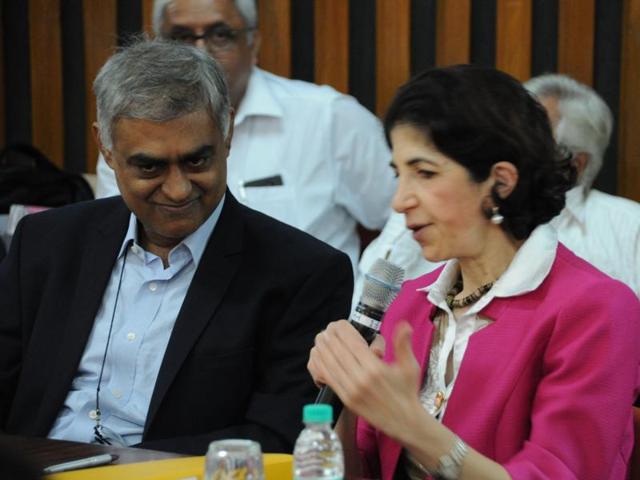India now CERN associate member, to have a say in European experiments
With the exception of not being able to vote, India as an associate member state will sit on the CERN council and have a stronger voice in scientific and finance meetings.
India will now have the right to speak in basic science experiments at the Geneva-based European Organisation for Nuclear Research (CERN), which houses the Large Hadron Collider (LHC) – the world’s largest particle physics laboratory - that discovered the elusive Higgs Boson or the God particle.

On Monday, India moved away from being an observer to become an associate member state in an agreement signed by the Department of Atomic Energy and CERN. With this, the country joins associate member states of Turkey, Ukraine, Cyprus, Pakistan and Serbia.
With the exception of not being able to vote, India as an associate member state will sit on the CERN council and have a stronger voice in scientific and finance meetings.
India will also have to contribute 11.5 million Swiss francs every year to the capital or to the operating costs of CERN’s programmes, which the country did not have to as an observer member. The amount is 10% of 1.1billion Swiss francs of CERN’s annual budget paid by 20 European member states that are part of the governing council.
“This is a historic day; a win-win situation,” said Fabiola Gianotti, director general, CERN, at the Tata Institute of Fundamental Research (TIFR). “India has been contributing in an important way by participating in experiments, and technology to build components. The goal now is to expand collaboration in new technology and experiments, and increase opportunities to train teachers and students.”
Being an associate member status also means that Indian industry can bid for tenders and procurements. So far, India built components within the country and sent them to CERN. Some industry collaborations being looked at are in the field of cloud computing, micro-electronic precision mechanics, silicon technology sensors, vacuum technology, among others.
“India has the industry and technology, and can now compete with other countries for industrial purchasing. Post-doctoral and staff positions will be open at CERN to Indian scientists for a limited duration. Teachers from India can participate in training programmes and transfer knowledge to students,” said Gianotti.
It was last year that India submitted a letter of intent and an application to become an associate member state following which the CERN council voted to go ahead. A taskforce from CERN visited India earlier this year to check if all the criteria were met, which then reported to the council in June.
“It’s a momentous day for Indian science,” said Sandip Trivedi, director, TIFR. “A new era has begun.” India can stay as an associate member with a review every five years, or can become a full member after two years.
The LHC was designed to recreate conditions that existed soon after the Big Bang that gave birth to the universe. In 2012, the elusive Higgs Boson or God particle was discovered towards which India made a significant contribution in constructing the machine and was involved in the experiments.
What’s in it for India?
*Larger role in formulating scientific policy and experiments
*Access to various facilities and industrial participation, commensurate with the financial contribution
*Students pursuing their Masters and PhD can participate in various schools and workshops organised by CERN.
*Post-doctoral positions and staff positions at CERN will also open up.




